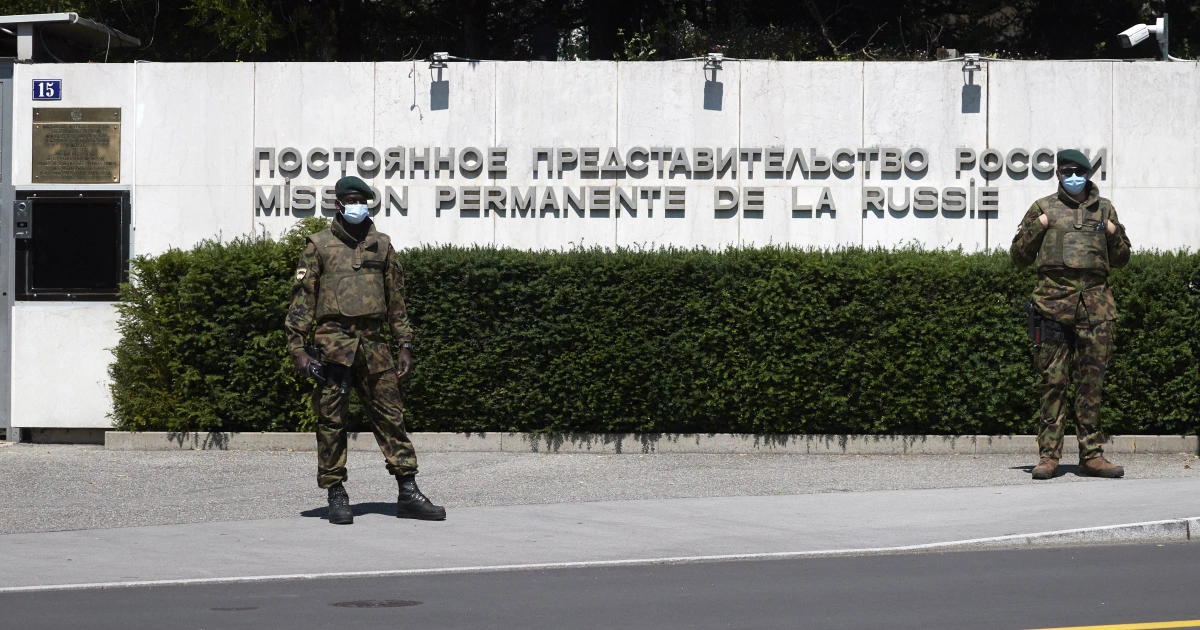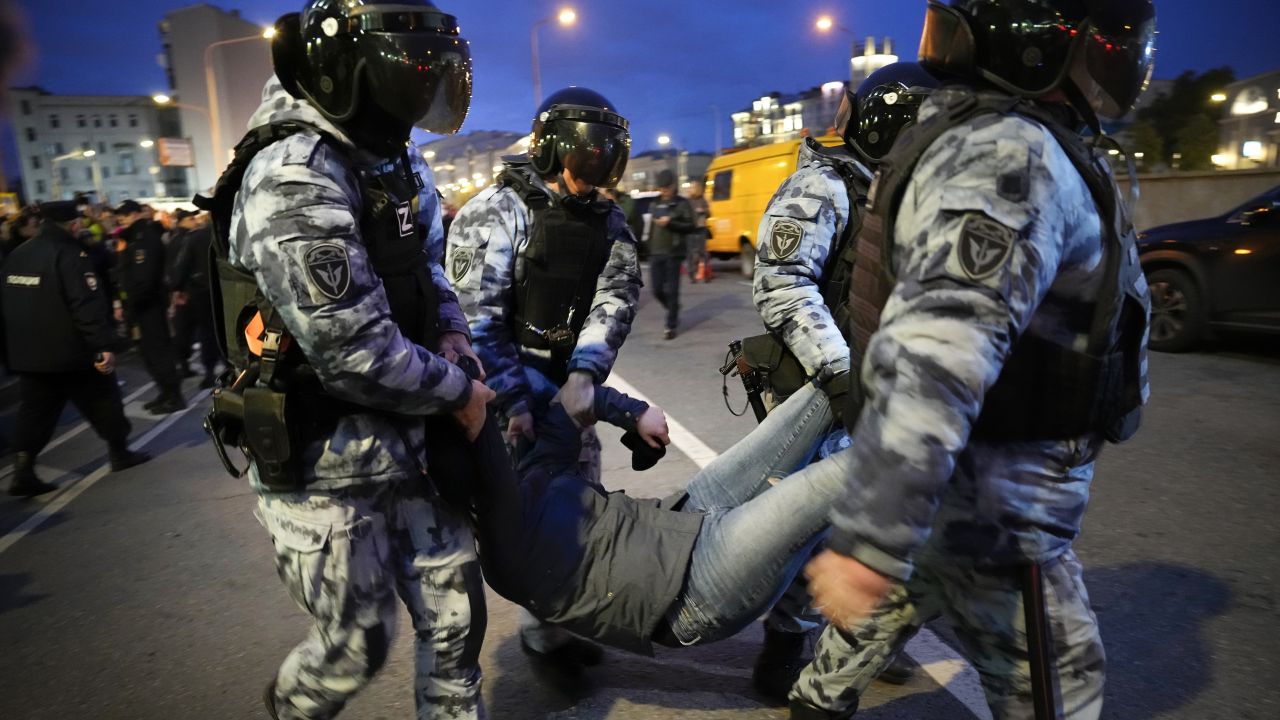Russia’s review postponed for the second time
Published on 20 Jul 2022, 04:00 PM
Russia requests the postponement of the consideration of its report to the next session in October 2022
 Permanent Mission of the Russian Federation to the United Nations Office, Denis Balibouse/Reuters
Permanent Mission of the Russian Federation to the United Nations Office, Denis Balibouse/Reuters
The Human Rights Committee opened its 135th session on 27 June, 2022. The review of the eighth report of the Russian Federation was scheduled to take place during this session, on 27 and 28 June. Nevertheless, Russia requested the postponement of the consideration to the 136th session, which will take place in October. This is the second time the review has been postponed, and NGOs were not informed of the decision in advance.
The Chair of the Committee, P. Pazartzis stated that the Committee will proceed with the review at the 136th session regardless of the attendance of the Russian delegation. Civil society organization had submitted 22 reports for the review. The briefings for civil society still took place, and they shared information regarding violations of freedom of assembly and expression in Russia interconnected with the war in Ukraine. Their assessment of the human rights violations in Russia and territories occupied by Russia are listed below.
Freedom of assembly and expression
According to civil society, two legislative changes mark the violations to the right of freedom of assembly and expression in Russia. One is the introduction of art. 20.3.3 of the Code of Administrative Offences, which punishes the public discrediting of the military. The other is art. 207.3 of the Criminal Code, which introduces the dissemination of deliberately false information about the use of the Russian armed forces with punishments up to 15 years. According to the Russian Communications Authority, any information not originating from the Ministry of Defense is considered fake news.
Since Russia's invasion of Ukraine, this trend has deteriorated dramatically. There have been 16,100 detentions of protesters, journalists and bystanders at anti-war mass protests, rallies and solo demonstrations, and excessive use of force by the police was widely reported. The total number of criminal cases related to anti-war protests now exceeds 173, and they are initiated under various criminal provisions including unauthorized rallies or vandalism. As for the suppression of independent media, dozens of journalists have been arrested during anti-war protests, often with excessive force. Moreover, independent media workers have had to leave the country because they faced fines for “abuse of media freedom” but they are still charged in absentia. Journalists are also included in numerous lists of foreign agents and labeled as extremists or terrorists.
The “foreign agents” legislation, which requires organizations that receive funding from outside of Russia to register, remains, and was even tightened in April 2022. This bill allows authorities to exercise full control over the activities of NGOs and intrudes on the right to privacy of persons listed as foreign agents, also banning their activities within Russia.
Human Rights violations in Ukraine
Civil society also reported that Crimea has become the base used by Russia for striking Ukrainian cities, involving the Crimeans in the full-scale war against Ukraine. Russia is able to launch missile and air strikes from the territory of occupied Crimea that have caused deaths of civilians. 3,000 forcibly mobilized Crimeans were sent to take part in hostilities against Ukraine, and captured Crimean soldiers reported that, when sent to Ukraine, they were told they were going to “training” or “special operations” and not to a full-scale war.
In Crimea, Russian authorities carried out mass detention of participants attending peaceful assemblies in support of victims of politically motivated prosecution and detained peaceful protesters, mainly of Crimean Tatar origin. Between 2014 and 2021, 44 people became victims of enforced disappearances in the occupied Crimea, and the fate and whereabouts of 15 are still unknown. There have also been large-scale enforced disappearances in Kherson, Zaporizhzhia, and other occupied regions of Ukraine. Moreover, 32 journalists have been killed in Ukraine since the start of the armed conflict on February 24, 2022.
In addition to this, since the occupation of Crimea, there has been a trend of violating the right to education that is now expanding to all newly occupied territories. Russia quickly began forming a Russian identity among school children and youth in Crimea and Sevastopol without respecting the religious and ideological convictions of the families. Militarization is mainly introduced through patriotic education and, as a result of these programs, the number of cadet classes in Crimea increased from 12 in 2016 to 109 in 2020. Moreover, military training of children aged 3 to 18 by state authorities, Orthodox church, and various paramilitary organizations is a worrying issue. In 2021 alone, 4,000 Crimean children enrolled in the Russian paramilitary organization.
Lastly, pre-trial detention centers in Russia, Luhansk, Donetsk and Crimea hold detainees and thousands of prisoners of war from Ukraine in impaired conditions. Russian authorities are also hiding information about the actual number of dead and wounded among the Russian military.
Judicial guarantees
Civil society also mentioned that the rights of fair trial and due process are not being respected, and the situation is particularly difficult for human rights defenders. The persecution of lawyers who provide professional assistance to victims of political repression is significant, and they are often detained for helping victims of human rights abuses, including in Crimea. As such, judiciary independence is threatened, and Russia uses COVID-19 measures to block court hearings from independent monitoring or journalists. As a result, over 120 Crimean political prisoners are being kept in detention.
Minorities and marginalized population
Another concern of civil society was the rights of indigenous peoples that are being violated by the Russian authorities and mining companies. Indigenous peoples are criminalized and threatened, in particular those involved in environmental rights, land rights, and those openly protesting against the war in Ukraine.
Human rights violations in the realm of drug policy were also mentioned. Allegedly, there is a failure to introduce legal safeguards to prevent interrogations or other procedural actions while the suspect person is suffering from withdrawal syndrome, and law enforcement continues to force people with drug dependence to self-incrimination. In this sense, the Russian drug control system is disproportionately punitive and discriminatory against marginalized populations.
Next steps
If everything goes as planned, the review of the Russian Federation will take place in October. Keep an eye on our Twitter account for the latest updates.
 Permanent Mission of the Russian Federation to the United Nations Office, Denis Balibouse/Reuters
Permanent Mission of the Russian Federation to the United Nations Office, Denis Balibouse/Reuters


